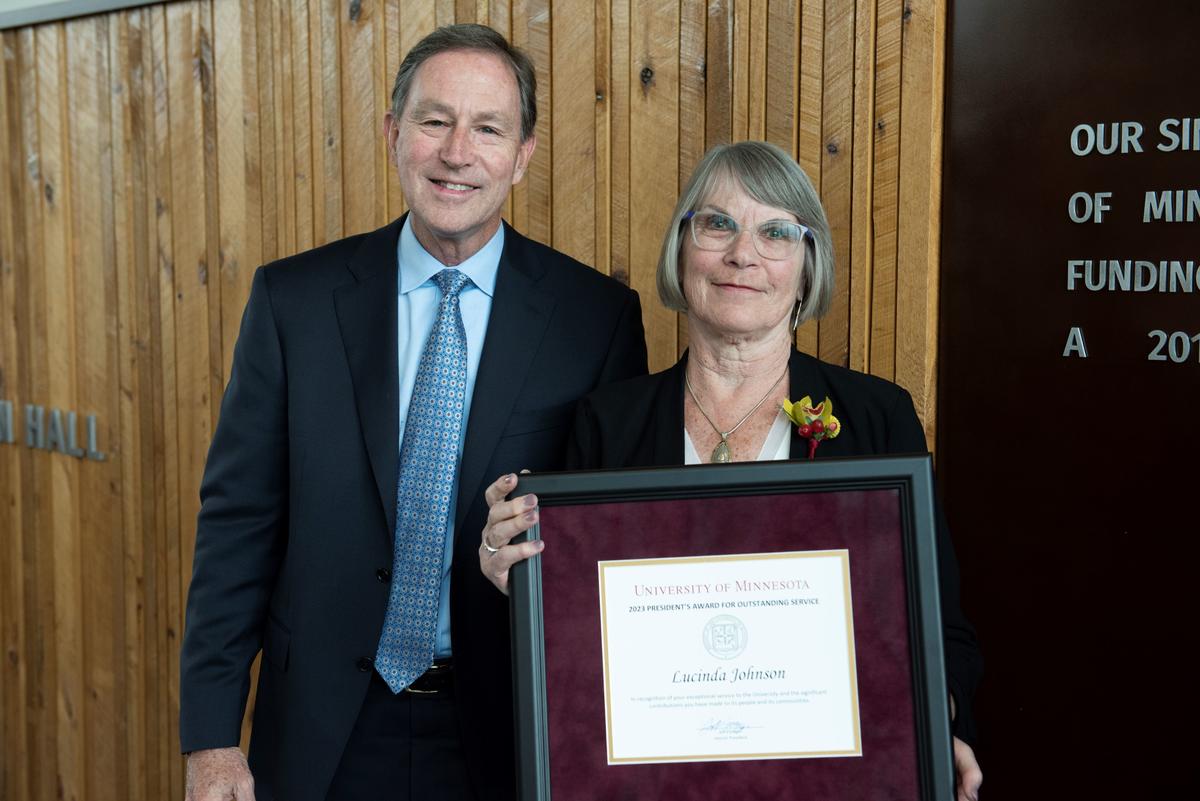Lucinda Johnson, senior research fellow, Natural Resources Research Institute (NRRI), University of Minnesota Duluth, is a talented and accomplished scientist who is admired and respected by her peers, a forward-thinking researcher, and an inspiration for the local and broader scientific community.
Her leadership at NRRI continually pushes the field of aquatic and environmental science forward, and her engagement and service at the state, federal, and international levels bring recognition to the excellent research conducted at NRRI and the University of Minnesota. She has pursued internationally recognized aquatic ecosystem research programs, mentored many students and colleagues, worked to

evolve her institutional leadership, broadened her expertise and perspectives, contributed significantly to cross-system collaborations and centers, and supported the journey to create the next-generation version of the NRRI and its leaders. Johnson was a pioneer in the application of geographic mapping system (GIS) technologies for the translation and communication of complex ecosystem data, just one example of her determination to propose forward-thinking research in anticipation of state, regional, and national natural resource needs.
One recent example of her pioneering spirit is the development of the Minnesota Natural Resource Atlas which provides free and easy access to extensive layers of data regarding the state’s natural resources; users can access, visualize, and analyze the data without the need for GIS skills. Johnson has mentored multiple undergraduate and graduate students, post-docs, and research colleagues at NRRI and across the University system. She is described by a former student as someone committed to staff career development, the success of early career scientists, and mentorship to students.
One of Johnson’s most lasting contributions at the University is the creation of the Institute on the Environment (IonE). She was a critical member of a 12-person working group that established IonE, a group commissioned by the provost to design an interdisciplinary, intercollegiate, and inter-campus unit to advance, celebrate, support, and catalyze environmental scholarship and teaching. Johnson serves on multiple boards, commissions, and committees. She is the vice chair of the United States Environmental Protection Agency’s (USEPA) Board of Scientific Counselors, co-chair of the Great Lakes Science Advisory Board Science Priority Committee of the International Joint Commission for the Great Lakes (US and Canada), and a selected member of the Governor’s Advisory Council on Climate Change.
Her nominator wrote, “Dr. Johnson’s exemplary and ground-breaking research accomplishments, her productive teaching and mentorship contributions, her strategic leadership development, and her stature on the state, national, and international stages on behalf of NRRI and the University of Minnesota clearly exceed expected contributions and set an example for the next generation of contributors.”
